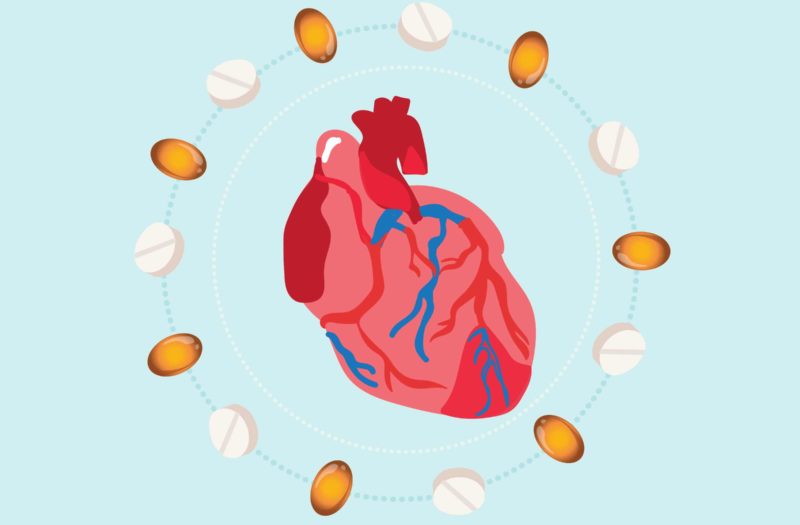Learn more about our FREE COVID-19 Patient Support Program for chronic illness patients and their loved ones.
This has been reviewed and updated as of May 4, 2020.
If you’re a #HighRiskCovid19 patient, you have many questions about the coronavirus pandemic that are unique to your chronic health condition. The Global Healthy Living Foundation and CreakyJoints are committed to helping you find the answers you need.
One common topic we keep getting questions about is anticoagulant (blood thinning) medications such as warfarin (Coumadin), apixaban (Eliquis), and rivaroxaban (Xarelto).
Do they increase your risk coronavirus complications and put you in the high-risk category?
The short answer: The medications themselves do not make you more susceptible to coronavirus infection or complications, says Satjit Bhusri, MD, associate director of cardiology at Lenox Hill Hospital in New York City and assistant professor of cardiology at Zucker School of Medicine at Hofstra/Northwell. “But the next question is why are you taking this medication in the first place? The answer to that is what makes you at high risk for COVID-19 complications.”
In other words, if you’re taking an anticoagulant medication, it’s because you’ve either had an event like a stroke or a pulmonary embolism — or you’re at high risk for one — and that makes you more vulnerable to complications if you were to get infected with coronavirus, says Dr. Bhusri
“If someone has a chronic blood clot in their lungs, they may have underlying respiratory issues that make COVID-19 more serious,” says David Davidson, MD, a cardiologist with NorthShore University HealthSystem-Metro Chicago. “And while atrial fibrillation [irregular heartbeat] itself doesn’t seem to be one of the underlying cardiac conditions that puts people at high risk, many of the conditions that contribute to atrial fibrillation, like high blood pressure, congestive heart failure, coronary disease, and age all would make people higher risk.”
What Blood Thinners Do
Blood thinners are medications that help keep blood flowing easily through your arteries and veins and help prevent blood clots from forming. They are commonly prescribed for such medical conditions as:
- Heart attack
- Stroke
- Atrial fibrillation
- Deep vein thrombosis
- Pulmonary embolism
One category of blood thinners is anticoagulants. These prevent your blood from coagulating, or clumping together to form clots. These include:
- Apixaban (Eliquis)
- Dabigatran (Pradaxa)
- Edoxaban (Savaysa)
- Fondaparinux (Arixtra)
- Heparin (Fragmin, Innohep, and Lovenox)
- Rivaroxaban (Xarelto)
- Warfarin (Coumadin, Jantoven)
Another category of blood thinners is antiplatelet medications. These act on a part of the blood called platelets and are often used to help prevent heart attacks or given to people after such procedures as stents. These include:
- Aspirin
- Clopidogrel (Plavix)
- Dipyridamole (Persantine)
- Prasugrel (Effient)
- Ticagrelor (Brilinta)
- Vorapaxar (Zontivity)
Blood Clots in COVID-19: Could Anticoagulant Therapy Be Protective?
You may have read about recent reports that many patients with severe cases of COVID-19 are experiencing mysterious blood clots. Many hospitalized patients are being preventively treated with anticoagulant therapy and doctors are actively studying whether this can help shorten hospital stays, improve outcomes, and even reduce deaths.
Of course, this begs the question: Are patients who are already taking anticoagulant therapy for an underlying health condition somehow protected from blood clots if they were to develop COVID-19? Doctors do not yet know, but are studying the data over time to see what they can learn.
This is a complicated topic. Read more here about the role of blood clots in COVID-19. In the meantime, it is still critical to be safe, follow social distancing, and avoid exposure to COVID-19.
How to Reduce Your COVID-19 Risk If You Take Blood Thinners
“COVID-19 is not going away any time soon,” says cardiologist Michelle Weisfelner Bloom, MD, an associate professor of medicine at Stony Brook University Medical Center in New York. “If you’re a high-risk patient or a caregiver for a high-risk patient, it is critical to do what you can stay safe and prevent being exposed.” This starts with following CDC guidelines, practicing social distancing, wearing face masks when in public places, and using good, frequent hygiene and disinfecting techniques.
The most important thing right now is to stay isolated, says Dr. Bloom, whose cardiology practice is focused on advanced heart failure and mechanical device support. “Stay in your home as much as you can. Avoid going out unless it is necessary. Get your groceries delivered if you can or ask a neighbor or someone in your community to do your shopping and errands for you.”
Avoid social contact with people outside of your household, she says. “It’s OK to go for walks outside with your immediate family or people you live with, but you should avoid physical contact with anyone else right now.”
The other important thing for high-risk patients is to discuss telemedicine options for routine health care needs, like appointments for medication refills or regular check-ups.
“Do not go to the doctor in person unnecessarily,” she suggests. “If you have an upcoming appointment, I would call the office and ask if there is an ability for you do the visit over the phone or computer, or see if you can delay it for a few weeks or months.”
Get Free Coronavirus Support for Chronic Illness Patients
Join the Global Healthy Living Foundation’s free COVID-19 Support Program for chronic illness patients and their families. We will be providing updated information, community support, and other resources tailored specifically to your health and safety. Join now.
Interview with David Davidson, MD, a cardiologist with NorthShore University HealthSystem-Metro Chicago
Interview with Michelle Weisfelner Bloom, MD, cardiologist and associate professor of medicine at Stony Brook University Medical Center in New York
Interview with Satjit Bhusri, MD, associate director of cardiology at Lenox Hill Hospital in New York City and assistant professor of cardiology at Zucker School of Medicine at Hofstra/Northwell.






